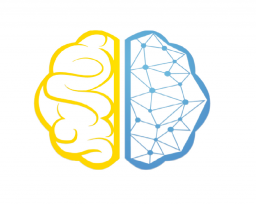Chitkara Business School Signs pact with ALPHABETA Inc for FinTech courses
Blog
What Color Is Your Life Vest?

The growth of information technology in the 80s and 90s gave rise to the knowledge economy and knowledge workers. Companies made significant investments in systems and infrastructure to support their traditional business operations. This created the IT industry to build, operate and maintain these systems. The internet began the shift of those operations to online and resulted in rapid growth of eCommerce and business process outsourcing. We are now in the midst of the third technology wave led by automation where business operations are increasingly moving into the “hands” of machines, bots and other AI technologies. According to the Institute for New Economic Thinking, “Half of all jobs will be automated in the next 5 years”. The Next Era of Human-Machine Partnership Report says “85% of the jobs that will exist in 2030 haven’t been invented yet”! How does a student or a career professional prepare themselves for this seemingly dystopian future?
Before we answer this question let us first look at the impact of AI and automation. The following is “an interpretation” of the well-known Hans Moravec Great Flood (Landscape of Human Competence) as it could apply to the field of Finance.

The basic idea conveyed by this diagram is that job roles that will be submerged as the water-level of automation rises are those that are repetitive, tedious and tiring. They do not require critical thinking, creativity, psychology, or management skills. In other words, they can be done by a machine today if they needed. We are already starting to see this already with jobs such as Bank Tellers, Bank Clerks and in many cases Traders or Support Staff. Brokers and loan officers could be next in line as machines become more and more sophisticated at computation, order processing and making decisions that are solely based on heuristics.
This is, of course, a somewhat simplified view of the world. One may ask why there are Tellers in-side a bank at our local branch even with the ubiquity of ATMs. Or why we still end up talking to a loan officer even if the entire application process is done online in a jiffy. Upon closer look however one can see that the Teller is no longer just a cashier but also a relationship manager at the branch helping clients. The loan officer is also a risk analyst who estimates short-term risks by speaking with the borrower. These traditional roles are being enhanced to augment and compliment machines to deliver a better outcome both for the bank and for the customer. Three areas that humans still have a gross advantage over bots are empathy, trust and flexibility. Wherever these skills are paramount to support a business process, humans will be needed, either to work with other humans or alongside bots.
With this background now we can try to answer the question we raised in this blog post. The way to future-proof your career is to follow this 3-part strategy:
Step 1: Pick a career path that can take you to higher ground as efficiently as possible and help you stay there the longest. It turns out, not surprisingly, jobs that are the safest from great flood of automation are also the ones that pay the highest.
Step 2: Once you are on a path, note that (world class) skills are your new currency to ascend. It is no longer sufficient to have knowledge that may be Googled. You need skills to use that knowledge in a particular business context. Skills can only be acquired by doing. Often in collaboration with others. And soft skills are the ones that will make hard currency.
Step 3: Business landscapes shift and change constantly. So the third part of the future-proofing strategy is to embrace re-skilling: learn something new every two to three years. This may or may not get you a promotion or a salary hike but it may be the best life-vest you can hope to wear if/when your company becomes the next Blockbuster or the next GE.
Comments












